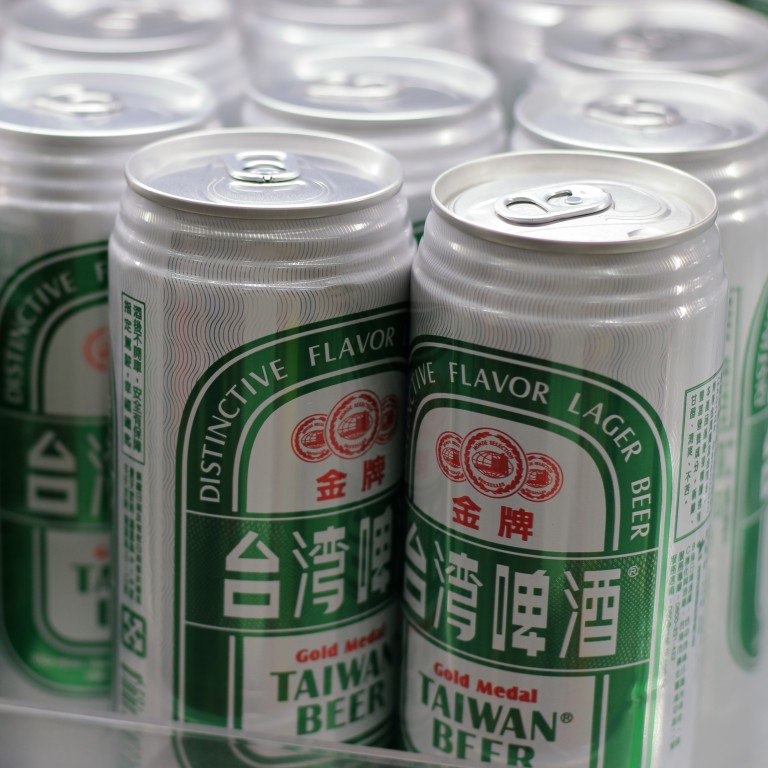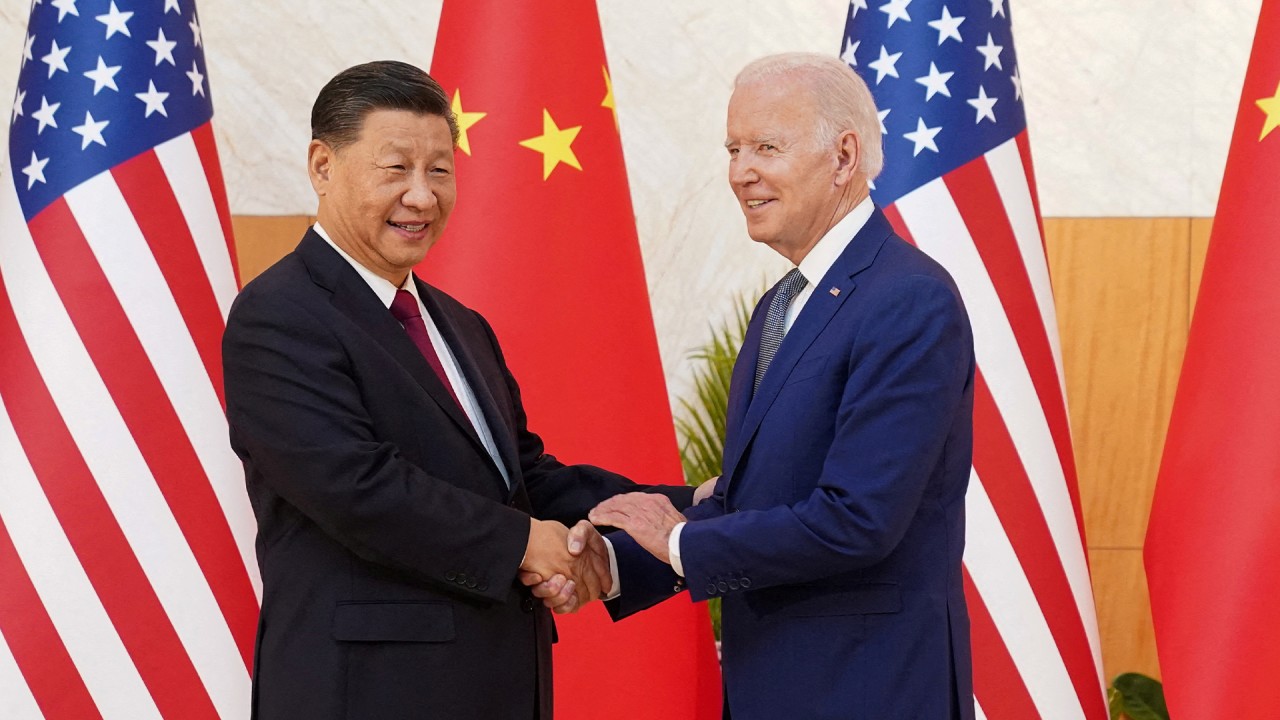
Taiwan Beer, suspended by mainland China, seeks re-entry as iconic brewer downplays market’s significance
- Taiwan’s Food and Drug Administration is redoing the export application after Beijing said its paperwork lacked data on ingredients and processing technology
- Further transparency seen easing dispute – ‘at least you know what they want’, says former think tank founder in Taiwan
Taiwan’s iconic liquor company will refile documents with mainland China for permission to export a range of beers, a company official said on Wednesday after the exports were suspended earlier this month in a trade flap that raised fears of political reprisals from Beijing.
Mainland China’s General Administration of Customs blocked shipments of Taiwan Beer, brewed by Taiwan Tobacco & Liquor, on December 10 despite the company having filled out export paperwork in August, its deputy general manager told the Post.
Liao Chih-chien confirmed that Taiwan’s Food and Drug Administration is now redoing the application that – if approved – would allow it to resume sales. Mainland sales average 18 per cent of annual offshore revenue, which is usually between NT$1 billion (US$32.5 million) and NT$1.5 billion across countries and regions, Liao said.
Taiwan Tobacco & Liquor, a 112-year-old domestic brewery owned by the government, has been selling beer to the mainland en masse since 2008, after a decade-long struggle for market entry. Political ties between the two sides improved that year with the election of a mainland-friendly Taiwan president.
‘No reason’ mainland China won’t lift liquor ban, Taiwan lawmaker says
The firm was one of eight beverage exporters and 105 seafood vendors that the mainland suspended earlier this month, according to statements from government officials.
Officials in Taipei said on December 10 that the mainland had rejected 2,409 applications to import multiple types of food and beverages since October 2021 – half a year after new customs regulations on food imports went into effect.
Taiwan’s Food and Drug Administration said on December 14 that China had rejected the applications for lack of data on ingredients and processing technology.
Mainland China’s suspensions raised concern at the outset that Beijing was making a political statement. Beijing sees the self-ruled island as a breakaway region that must be unified with the mainland, by force if necessary.
Taiwan Tobacco & Liquor receives most of its NT$58.2 billion in annual revenue from beer widely sold in the island’s supermarkets, convenience stores and restaurants. The company distributes bottled water, processed teas and other types of alcoholic drinks as well.
But the company lost its monopoly – as well as domestic market share – after Taiwan opened to liquor imports in 1987, prompting it to develop sales offshore.
Liao played down the pending application to mainland China.
“We’re doing this according to procedure, and whether mainland China permits us or not, we’re not getting too worried because the amount we ship isn’t too big,” he said.
Japan, he said, doubled its purchases of Taiwan Beer last year, signalling a potential shift in sales direction.
Sea travel between Taiwan, mainland China may resume in time for Lunar New Year
Taiwan Tobacco & Liquor said in its 2022 outlook that it had customised non-alcoholic, “beer-flavoured beverages” for Japan and sold honey beer to the Japanese market.
Neither Japan nor any other market is likely to offset domestic Taiwan Beer sales, said Darson Chiu, deputy macroeconomic forecasting director with the Taiwan Institute of Economic Research. Other countries already have their own favourite beer brands, he said.
“Taiwan Beer is still mostly for domestic consumption, and the foreign market is very small,” Chiu said.
But the brewer, one of several food, beverage and utility companies under government ownership in Taipei, remains a Taiwanese “emblem” that consumers everywhere can see, said Liang Kuo-yuan, retired founder of the Yuanta-Polaris Research Institute, a Taipei-based think tank.
“The mainland needs to be transparent, and the Taiwan side also needs to comply and be transparent,” Liang said. “Transparency should help ease this dispute – at least you know what they want.”


